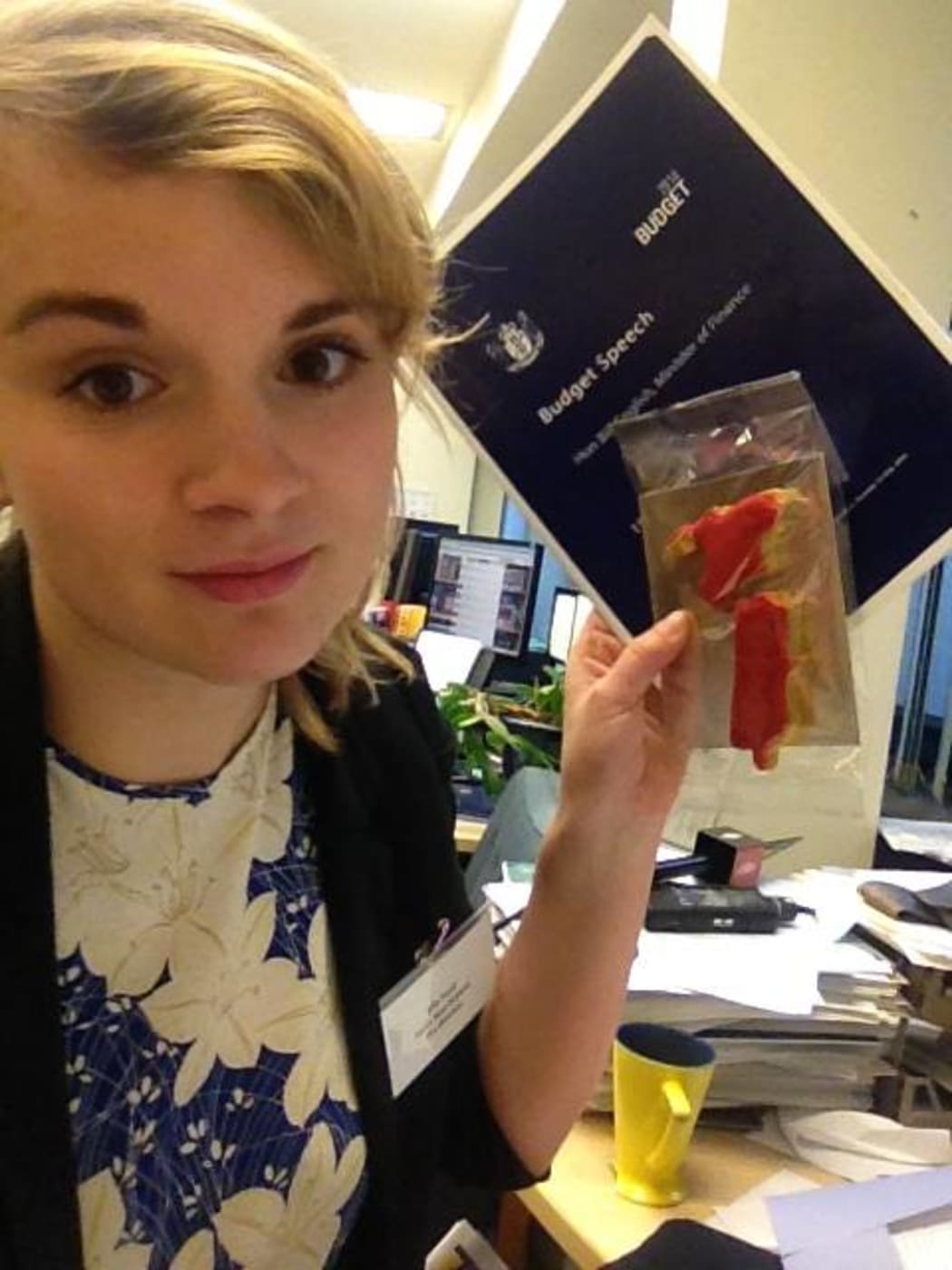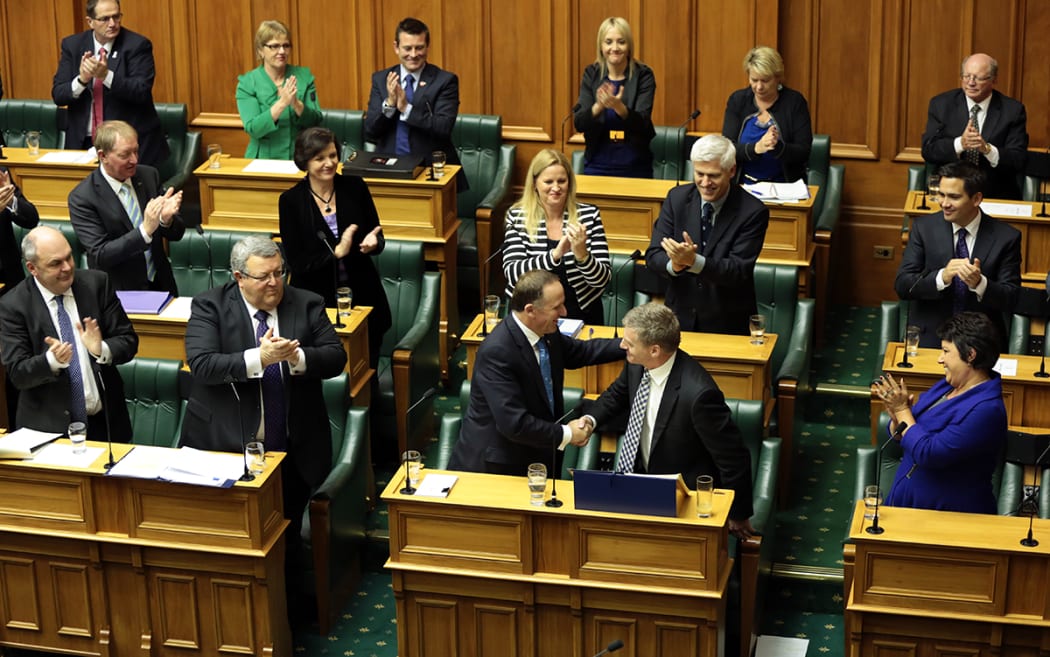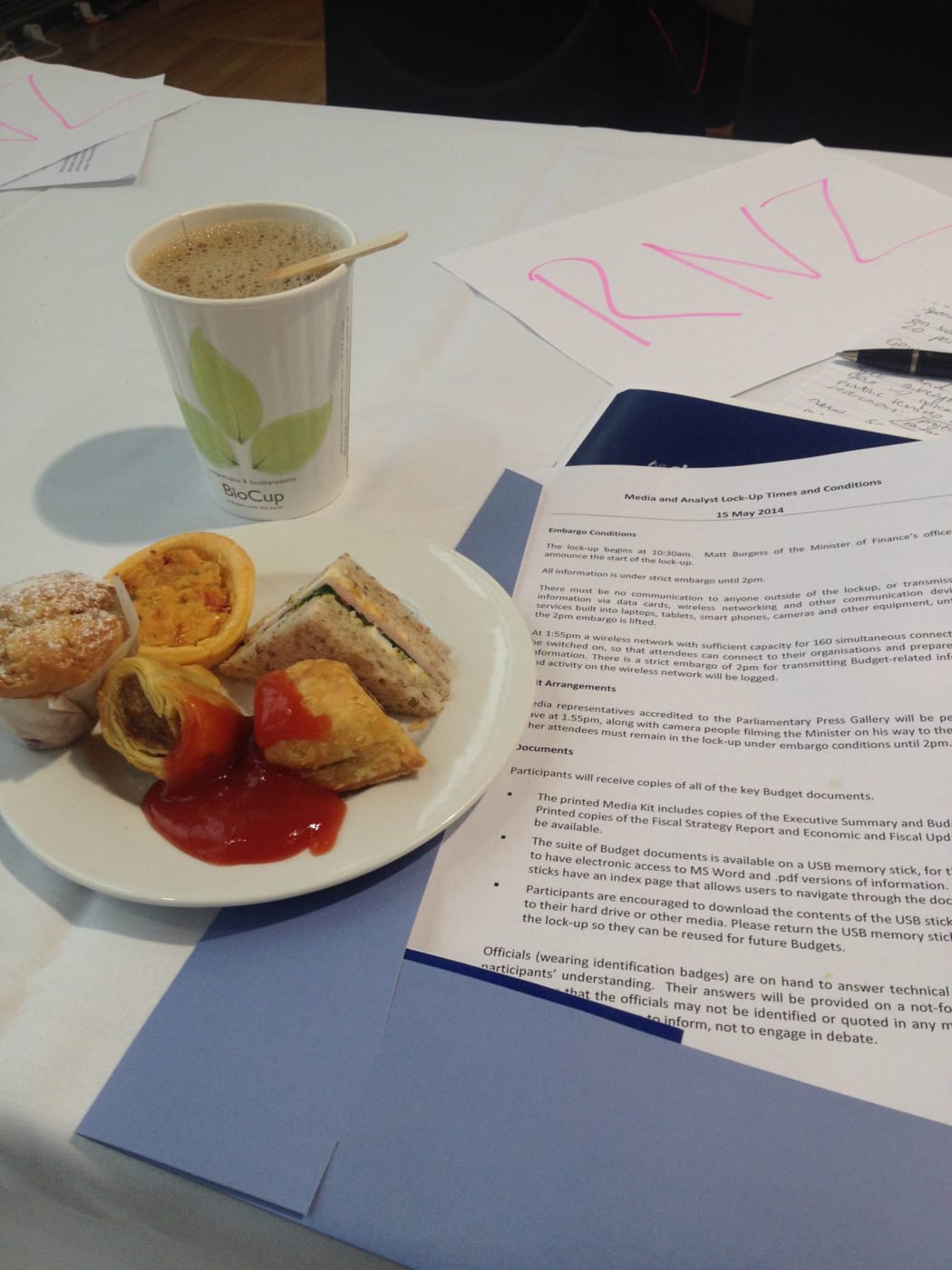The hushed voices and bowed heads in a draughty hall; the cramps from writing by hand for the first time in months; the cups of pick’n’mix and Fruit Bursts (for focus). A lot about the Budget Day lock-up reminded me of NCEA exams – maybe one of the ones that everyone was pretty laissez-faire about, like Year 11 Health. I thought about asking the Treasury staff (or “boffins”, as I heard them uncharitably referred to) patrolling the aisles for permission to go to the bathroom. Then I realised that it would be awkward if they didn’t get the joke.
There was certainly no need to ask for extra paper (shout-out to everyone who took a “fling it all at the wall and see what sticks” approach to scholarship English), with every journalist and analyst given a hefty pack of press releases and a USB stick with the full suite of Budget documents on it. Somewhat shortsightedly as a “digital native”, I did not bring a laptop, and so was left with the option of scrawling notes by hand, or looking like a disinterested, grumpy teen texting.

Piles of paper and a sugar cookie: the spoils of budget day Photo: Unknown
I was seated next to seasoned Budget commentator and Morning Report co-host Guyon Espiner. I admitted it was my first lock-up and that I was mainly there for the free lunch. (I didn’t mention writing a self-indulgent, subjectively amusing, first-person account of my experience, but it was probably implied.) He received my naïveté benignly and with grace and helped me to make sense of the pile of paper before me. At one point he asked me what I thought of something; I don’t know how I’ll ever recapture that high.
Everyone present was tasked with processing, filtering and responding to a pile of documents and data, much of which had already been spun into spin, in a matter of hours. The numbers bandied about are enormous – billions, not millions – and the facts, sometimes misleading. The average full-time wage of $54,700 was cited repeatedly, but the median figure is significantly lower. The advertised boost to apprenticeships is in fact $10 million down on last year. Tertiary education as a whole has received less investment in this Budget than it did in the last one.
I was told this was par for the course – part of the game, even – but it makes divvying up the Budget announcement into boosts and cuts difficult. So far as these sorts of things can be won or lost, parents appear to have come out on top, with a four-week extension to paid parental leave, an increase to the parental tax credit, and free GP visits and prescriptions for children under the age of 13. As my colleague Craig McCulloch remarked, “Looks like the real way to get value out of this would be to have a kid” – or to buy a car, with a reduction in ACC levies for private motor vehicles on the cards from July 2015.

Mps clapping after Finance Minister Bill English delivered the budget Photo: RNZ / Diego Opatowski
It just goes to show, as far as ‘youth angles’ for today’s announcement go – there aren’t many to choose from. There’s scant new money for tertiary education, and what has been signalled is targetted at specific areas like pharmacy, physiotherapy, agriculture and sciences – what the Tertiary Education Union describes as Minister Steven Joyce’s “pet business projects”. The main tertiary education fund, the Student Achievement Component, which covers the general costs of teaching and learning, has risen by less than inflation.
As for student debt, the student loan repayment threshold, which is currently at $19,084 a year, will not be adjusted for inflation for a further two years. This means the total repayments made by borrowers will marginally increase. But, all in all – and especially after the raft of changes made to student support schemes two years ago, including the controversial cut to post-graduate allowances – this feels like getting off lightly, not that any halfway political strategist would condone reinstating interest on student loans in an election year.
The absence of initiatives to make housing more affordable was remarked upon in the post-announcement Q&A with Minister English. Though he referred to “increased support for those on low and moderate incomes to get into their first home through increased eligibility for KiwiSaver first home deposit subsidies, and by trebling funding for Welcome Home Loans” in his speech to the House, those changes were in fact made in August last year – and they haven’t done much to make home ownership an achievable goal for young people based in New Zealand’s main centres.
Today’s announcement did see duties and tariffs on building materials temporarily removed in a bid to increase competitiveness and improve housing affordability. But it’s only projected to take around $3,500 on the construction of a standard New Zealand home. Minister English acknowledged that this would probably not satisfy first-time homeowners, but that keeping interest rates down would benefit them in the long run.

A surprisingly pleasant lunch Photo: Unknown
The Government is confident that it will achieve its surplus target of $372 million this year, and that it’s on track for a net Crown debt of no more than 20 per cent of GDP in 2019/2020. “Responsible” management of a growing economy, and keeping rates low, were recurring themes of today’s announcement, which kept within the $1 billion new operating allowance. That’s due to increase to $1.5 billion next year, and by 2 per cent each year thereafter. The name of the game, it seems, is “long”.
As a politically engaged but non-partisan twenty-something, with a basic knowledge of economic pressures and no ties to New Zealand that I couldn’t cut for better financial, career or personal prospects, I didn’t feel like there was a lot in Budget 2014 that resonated with me. Apart from lunch, which significantly exceeded my expectations.
You can get all of RNZ's budget 2014 coverage here.

